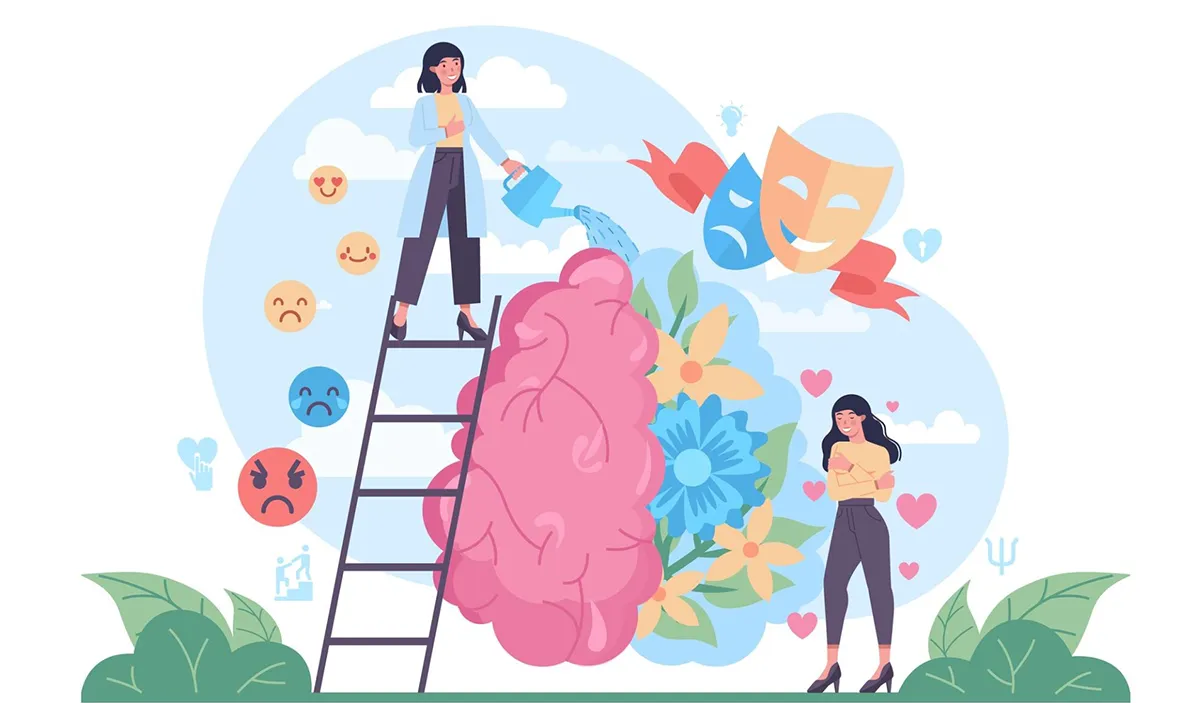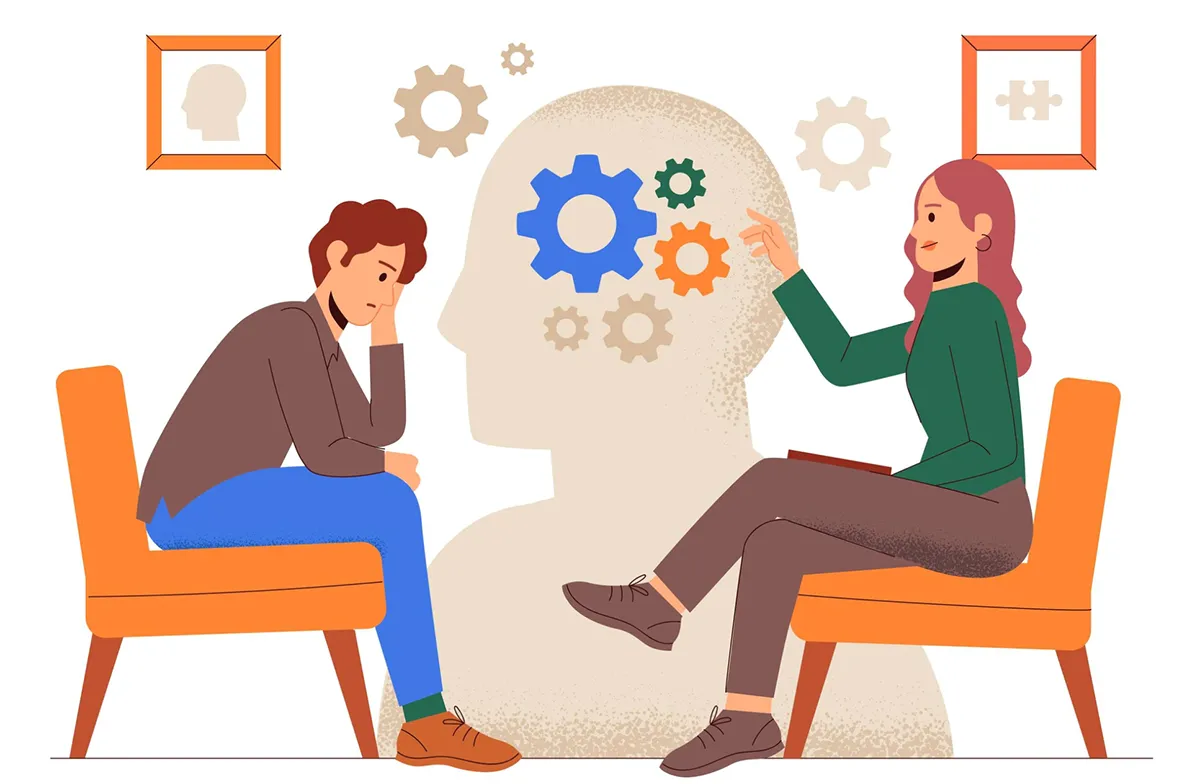Learn More About Psychological Research Studies
What Are Psychological Research Studies?
Research conducted by psychologists to analyze the perceptions and actions of people or groups is known as psychological research. Their work may be used in employment, education, health, and medicine.
The DSM-5 (Diagnostic and Statistical Manual of Mental Disorders) lists around 300 mental illnesses. Medical practitioners use this manual to recognize and classify mental disorders.
A few of the major categories of mental illnesses include:
- Mood disorders like bipolar or depression
- Anxiety disorders
- Psychotic disorders such as schizophrenia
- Personality disorders like narcissistic personality disorder
- Eating disorders like anorexia
- Trauma-related disorders like PTSD
- Substance abuse disorders like addiction
Many individuals have problems with their mental health at least one point in their lives. However, a mental health issue turns into a mental disorder when persistent signs stress you and impair one's capacity to do daily tasks.

A mental illness may make life unpleasant and interfere with regular activities, including school, job, and relationships. Most of the time, a combination of medicine and talk therapy (psychotherapy) helps control symptoms.
Psychological research studies aim to learn more about people with such disorders, how to treat them, manage symptoms, and improve the overall quality of life.
Why Are Psychological Issues Being Studied Through Research Studies?
Mental health is an important component of overall health. It can impact physical health as well.
One in five adults in America experiences mental illness every year, and one in six young people from the ages of 6 to 17 years also experiences mental health disorders annually. Millions of people all over the world have some form of psychological disorder.
These disorders are lifelong issues that impact daily life, the ability to work, relationships, and more. To uncover patterns and social determinants of public health, psychological research studies investigate biopsychosocial variables, or how psychological, social, and biological functioning interact.
The present situation of mental health in the United States and throughout the globe is strongly influenced by those statistics. These research findings also impact healthcare, public health, and education. For instance, by helping public health officials plan strategies to enhance community mental health, psychological research and assessment may influence health policies.
Data lets us determine if the available resources and services for mental health now match those requirements. The regions with the greatest needs often have the fewest resources and services.
Healthcare providers and other key parties should prioritize policies and initiatives for places where gaps are most severe by using information from psychological research and assessment to educate them about the holes that are already present.
Hence, psychological research studies are a fundamental way to understand, diagnose, treat, and manage psychological disorders. They can help improve mental health for millions of people around the world.
What Are the Types of Treatments Available for Psychological Issues?
There are different types of treatments available for psychological issues. A person with a psychological disorder might receive one or a combination of the following treatments.
Psychotherapy
The therapeutic management of mental disease by a qualified mental health practitioner is known as psychotherapy. It examines ideas, emotions, and actions to enhance a person's well-being. The most efficient method to encourage healing is via a combination of psychotherapy and medicine. Cognitive behavioral therapy (CBT), dialectical behavior therapy, exposure therapy, etc., are commonly used to treat psychological issues.
Medication
Mental diseases cannot be entirely cured by medication. Nevertheless, it could help manage symptoms. The best approach to encourage healing is via medication and counseling.
Support Team
A helpful group gathers people who encourage one another toward healing. Support groups frequently consist of peers who have gone through comparable circumstances rather than specialists.
Hospitalization
A small percentage of times, hospitalization might be required so that a person may be carefully observed, properly diagnosed, or make medication adjustments when their mental condition momentarily worsens.
Management of Cases
With a case manager's assistance, case management plans and arranges assistance for a person. Numerous ways to promote rehabilitation may be evaluated, planned, and implemented with a case manager's aid.
Alternative and Complementary Medicine
The term "complementary and alternative medicine," or "CAM," refers to procedures and methods not often used together with mainstream medical care. CAM can be used instead of or along with traditional medical procedures.
Self-Help Program
With a self-help plan, a person deals with their disease by practicing wellness-promoting measures. Addressing well-being, triggers, recovery, or warning indicators may be part of self-help initiatives.
Friend Support
Getting support from others who have gone through similar circumstances is referred to as peer support.

What Are Some Recent Breakthrough Research Studies for Psychological Problems?
2015: Machine Learning Identifies New Brain Network Signature of Major Depression - For mental health practitioners, identifying severe depression is often not too challenging, particularly in light of the quantity of research and information regarding symptoms. Nevertheless, researchers would like less uncertainty around the connection between sadness and the brain.
A team of scientists from Kyoto, Japan's Advanced Telecommunications Research Institutes International, has identified networks of coordinated activity between regions of the brain associated with severe depression. To develop successful psychiatric therapies, it is essential to comprehend the activity in the depressed brain.
The researchers analyzed and compiled data regarding coordinated activity between several areas of the brain of a depressed person using a brain imaging apparatus. This technique located imaging data that might represent the activity of the brain networks that could characterize severe depression.
The data offered a 70% accuracy in detecting severe depression when used to diagnose depression in additional research participants. The ground-breaking study offers hope for understanding how severe depression alters brain activity and may aid in developing psychiatric therapies that specifically target such activity patterns/
2018: Exploring the Relationship Between Frequency of Instagram Use, Exposure to Idealized Images, and Psychological Well-being in Women - One recent research looked at the connection between high Instagram use and low self-esteem. According to the experts, using the photo-sharing app mentioned above may have a detrimental psychological impact on women.
2022: Efficacy and safety of psilocybin-assisted treatment for major depressive disorder - A previous study by scientists at Johns Hopkins Medicine showed that people with severe depressive disorder had significant symptom relief after psilocybin therapy for up to one month. The substantial antidepressant benefits of psilocybin-assisted treatment, when combined with supportive psychotherapy, may endure at least a year for certain patients, according to a follow-up analysis of those individuals.
2022: Depression, Depression Treatments, and Risk of Incident Dementia: A Prospective Cohort Study of 354,313 Participants – Dementia risk was linked to depression and was 51% greater in those with growing, chronically low, and chronically high levels of depression but not those with decreasing levels of depression. Receiving depression therapies was associated with a hazard ratio of 0.7 (95% confidence interval= 0.62-0.77) compared to individuals who were depressed but remained untreated. Treatments for growing and persistently low depressive symptoms were linked to a 42% and 29% decreased dementia risk. However, the lowering impact for persistently high symptoms was modest.
Hence, in the rising and persistently low course, there was a strong negative correlation between depression therapy and dementia, underscoring the need for early interventional techniques before depression progresses to a chronically severe condition.
2022: Parallel pathways for serotonin biosynthesis and metabolism in C. elegans - The tiny roundworm Caenorhabditis elegans' been widely utilized as a model for neurobiology studies for examining serotonin's function in regulating food intake and behavior.
Scientists believed that C. elegans had only one biochemical route to produce serotonin for the longest time, which was rapidly ruined. Now, Schroeder's group and others at Columbia University have established that those presumptions were partially accurate. They identified a second, alternative biosynthetic route that contributes to the production of nearly half the serotonin in their model system.
2017: Treatment of anxiety disorders - The most common mental illnesses are GAD and other anxiety disorders. The creation of evidence-based, solid recommendations for treating PDA, SAD, and GAD is made possible by abundant data from controlled randomized trials now accessible. Most of the time, CBT plus medication therapy may significantly improve the life quality for GAD patients.
2021: Impacts of anxiety and socioeconomic factors on mental health in the early phases of the COVID-19 pandemic in the general population in Japan - Males were more likely than females to experience psychological distress, which is indicated by a K6 score of 5 or above, at a rate of 50.3% vs. 52.6%. Men in their twenties and those with yearly household earnings under 2 million yen had considerably higher K6 scores than men over 30 years of age and people with an annual household income above 2 million yen.
According to binary logistic regression analyses, lifestyle choices, including sleep, insufficient rest, and nutritious food, as well as pandemic-related variables such as inability to undergo clinical tests right away, medical history, difficulty navigating daily life, difficulty finding groceries, vague anxiety, and new work style are all significantly associated with psychological distress. People with low incomes and younger generations had higher rates of psychological discomfort than other categories.
Who Are Some of the Key Opinion Leaders / Researchers / Institutions Conducting Psychological Research Studies?
Global Psychological Association: With over 133,000 researchers, clinicians, educators, students, and consultants as members, the American Psychological Association (APA) is the foremost professional and scientific organization representing psychology in America.
British Psychological Society: The British Psychological Society, which represents psychologists and psychology in the country, is in charge of fostering excellence and moral conduct in the field's research, educational tools, and applied endeavors.
Korean Psychological Association: The Korean Psychological Association assists psychology majors in advancing society by issuing licenses in the fields of counseling psychology, clinical psychology, addiction psychology, industrial and organizational psychology, forensic psychology, developmental psychology, and health psychology.
International Association of Applied Psychology: The oldest and most significant international organization of individual members and international affiliate organizations is the International Association of Applied Psychology, which was founded in 1920. The main goal of the IAAP's establishment was to facilitate worldwide psychological interaction and communication. European psychologists have dominated the Association despite being global in nature and breadth during the first 50 years of its launch.